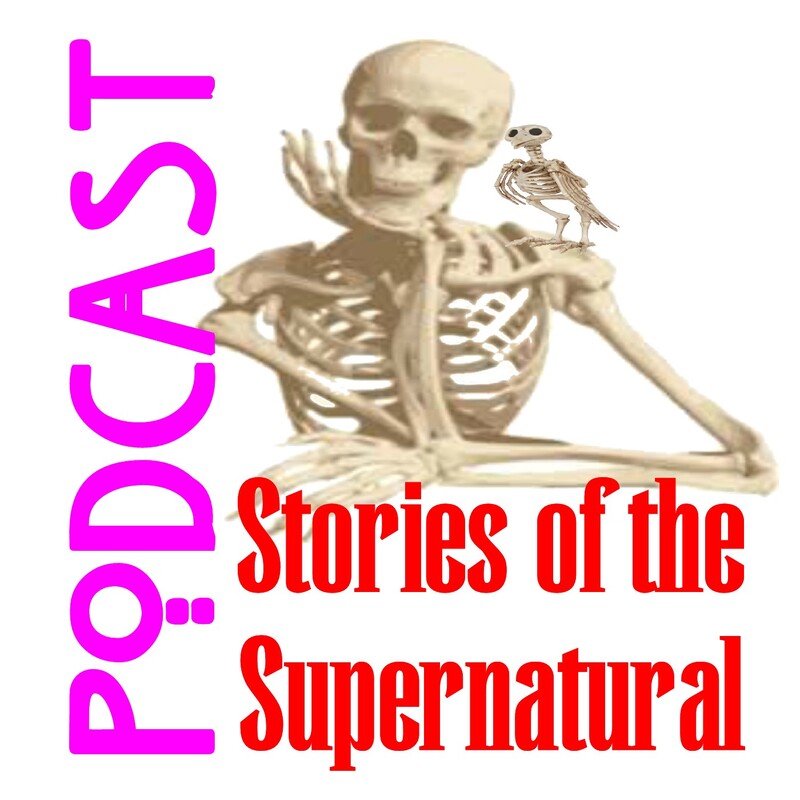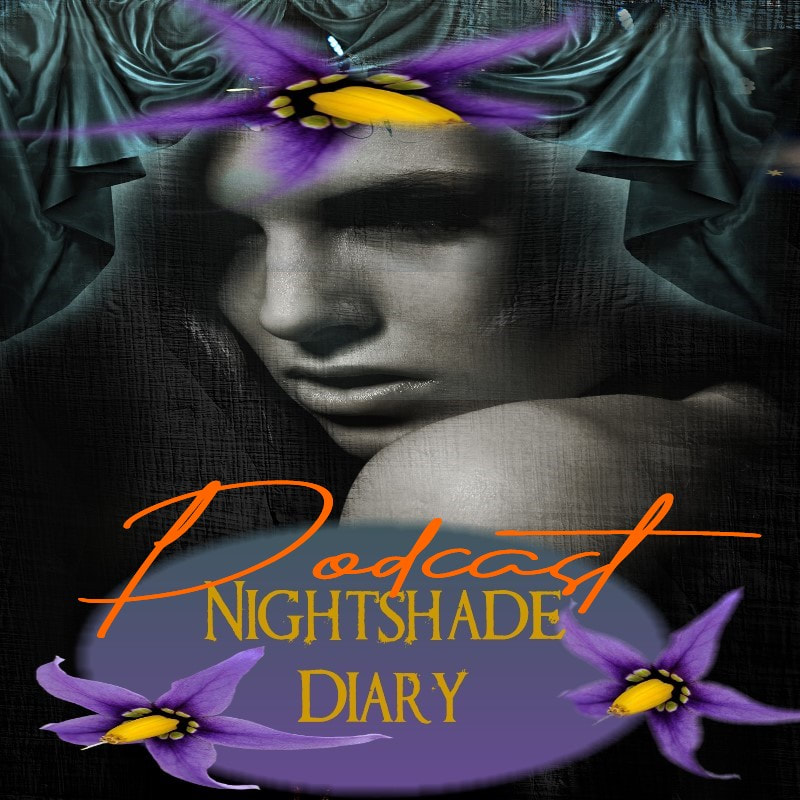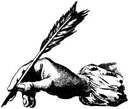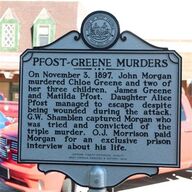 By M.P. Pellicer | Stranger Than Fiction Stories John Morgan was only 22 years old when he took a hatchet and killed three persons that had treated him like family. 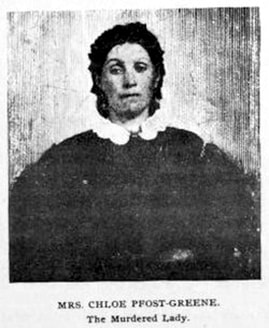 Chloe Pfost Greene (1836-1897) Chloe Pfost Greene (1836-1897) 1897, West Virginia Chloe "Cloah" Koontz married Francis Marion Pfost and they had eight children, five girls and three boys. The youngest Matilda "Tilley" was only 2 years old when her father died in 1873. Chloe Pfost remarried two years later. Her second husband was Edward H. Greene, who was 28 years older than her. He lost his wife the year before, and he had seven children by her. He would have another son with Chloe named James. Chloe Pfost Greene's husbands were not meant to outlive her. Edward Greene died in 1895, at the age of 90. Three years before she had lost her daughter Sarah Pfost Whiting who was 28 years old. Chloe kept living at the Pfost farm in Jackson County, West Virginia. Her three children Matilda, Nancy Alice and James lived with her. The Pfost-Greene family were known for helping others, and were well-liked in their community. 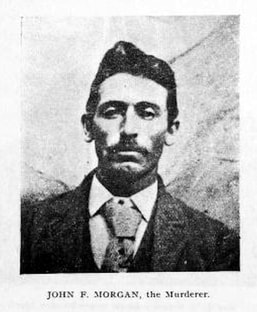 John F. Morgan who betrayed kindness with murder John F. Morgan who betrayed kindness with murder They took John Ferguson Morgan into their home when he was 16 years old. It was said by the newspapers that in his early youth he had been neglected by his parent who were "indifferent people". He was an illegitimate orphan, whose mother died when he was about 9 years old, and since then he had wandered from home to home. At the Greene farm he was treated like a family member, and he lived with them until 1896, when he married Rebecca Hall, and moved to a farm located less than a mile away. Chloe Greene helped John by giving him work and making sure he could feed his family. She gave him a horse, which he traded for two younger ones. He took out a lien against the horses, and when the bill came due he could not pay it. His solution to the dilemma was attacking his benefactress and her children. 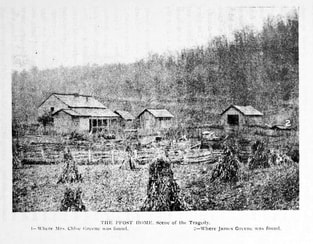 Pfost-Greene homestead where the family was killed Pfost-Greene homestead where the family was killed The week before the attack, Chloe Greene was expecting money for a horse she had sold. John Morgan came to the house unexpectedly at 1 a.m., and asked James if they had received the money. Even though it was an odd question, James told him they expected it the next day. The family was concerned that John would try to steal the money, and mention was made to neighbors about their suspicions. A week later John Morgan came to the house on November 2, and asked Mathilda to cut his hair. Since night had fallen, she said she could do it properly the next day. On November 3, 1897, very early in the morning James went to feed the hogs. John followed him and crushed his skull with a mattock, a farm tool shaped like a pick axe. The others were in the house and were unaware of what happened. John returned and when they asked where James was, he said that he left to check traps. 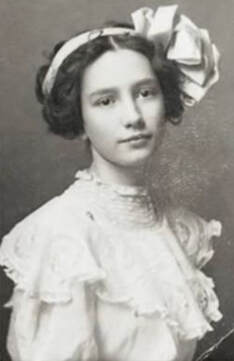 Mathilda Pfost (1871-1897) Mathilda Pfost (1871-1897) Chloe and her daughters knew this answer could not be true, since James had brought the traps home the day before. Though they were suspicious, Chloe went to the back of the house to make the beds. Nancy Alice and Matilda thought it strange that James had not returned to the house, despite Morgan's explanation. They asked John about this as they were making breakfast, and he tried to change the subject. Suddenly he struck Matilda twice on the head with a hatchet. He then hit Alice on the top of the head. The wound penetrated her brain and she fell to the floor. Mathilda regained her feet and ran out the door. Morgan went after her. Despite her wound, Alice got up and ran out of the kitchen through a closet into the sitting room, and then to the porch. Then she saw Morgan coming down the passageway into the sitting room. Mathilda was later found dead in this room. 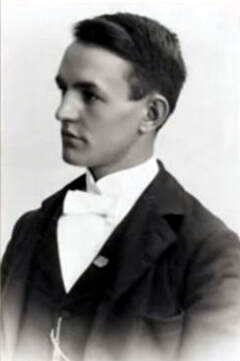 James Greene (1879-1897) James Greene (1879-1897) Chloe Greene was still in the bedroom with the door closed. Morgan broke the door down. She tried to run away through the house while he attacked her with the hatchet. She was found lying with her feet on the edge of the porch, and her body on the ground with four wounds on her head. Alice hid behind some boards, and then in a corner of the hen house. Still bleeding she made her way through the cornfields, hearing her mother and sister screaming. Despite her sister calling for her to return, she kept running to a neighbor named John Chancey. Her cries brought him from the house, and she told him what happened. Soon people arrived and found Chloe and Mathilda alive, but unconscious and lying in a pool of blood. James was dead in the hogpen. Chloe and Mathilda would die from their injuries. The murder weapon was found a distance from the house in a garden by Mr. Chancey's house, leading one to believe that Morgan had followed Alice when she fled. 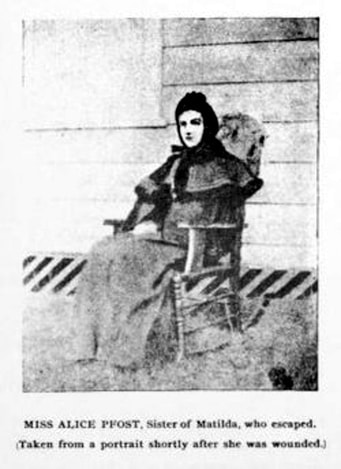 Nancy Alice Pfost shortly after the attack Nancy Alice Pfost shortly after the attack By 10 a.m. six hundred people were at the farm. G.W. Shamblen spotted John Morgan and he was pursed along with other members of the community. He gave up and was arrested. Another version of his capture was that he was caught in a store at Walton. It was after dark and he went to buy tobacco, when Constable John Camp happened to be in the store and recognized him. He covered him with a revolver, and he was shackled and guarded until morning. It was said Morgan was in mortal terror of being lynched. Morgan pled not guilty and appeared to care nothing for his crime. The first witness was Nancy Alice Pfost, and her testimony was consistent with what was known. It was clarified he carried an ax and not a club. Morgan said he killed his victims in self-defense. 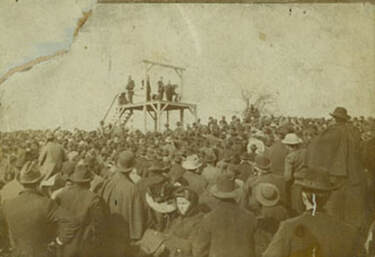 Execution of John F. Morgan (Raines) c. Dec. 1897 Execution of John F. Morgan (Raines) c. Dec. 1897 It took the jury less than an hour to return a verdict of murder in the first degree without recommendation, which meant he would be sentenced to death. During the proceedings it was clarified that his true surname was Raines. His mother kept house for a man named Morgan, of whom his father became jealous and killed him, for which he was killed by Morgan's family members. It seemed that John's biological father, Marion Raines (Rine, Rain, Ryan) was plotting to kill Morgan when his son was still a baby, and had a reputation as a sadistic man. Why his mother would use the surname of a man she worked for is unknown. When John Morgan was six years old, he was sent to live with the Daily family. Mrs. Daily went to another part of the house, leaving Morgan in another room with her young child. Suddenly the baby screamed and she rushed back to find Morgan astride the baby, with a knife ready to cut his throat. He was sent home. 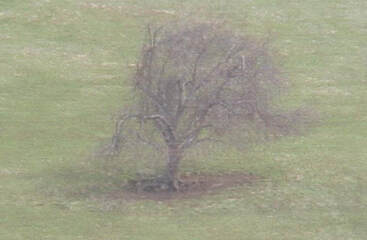 Present day only a lone tree marks where John Morgan was buried Present day only a lone tree marks where John Morgan was buried During his last confession, Morgan implicated a man named Ben Anderson who he said helped him with the murder of the Greene family. He said that Nancy Alice was in love with him, and he planned to kill her mother so they could get the property and live together. His lack of remorse, and willingness to implicate innocent persons in his crime deepened the belief in his degeneracy. During the time he waited for the day of his execution, he cried while pacing inside the cell. Then other times he laughed and joked. The rope that was used for the execution had been used to hang three other men before. It was made of fine silk and hemp. He escaped from jail days before the hanging by fooling the jailer, however he was quickly recaptured. He was executed on December 16, 1897, in Fairplain, Jackson County approximately 45 days after the crime. There was so much outcry and attendance by the surrounding communities, that his execution was the last public one to be held in West Virginia. From then on, executions were carried out inside Moundsville Penitentiary. Burial was refused for John Morgan by his father-in-law Hiram Hall, and likewise by the trustees of the cemetery at Fair Plains. Burial was finally made on the land of N.U.G. Shinn, brother of the sheriff. The remains lay in the coffin overnight inside the cell occupied by Morgan when alive. Nancy Alice Pfost died in 1944 at the age of 75. She carried the scar resulting from the wound on her head to her grave. She outlived all her siblings. They are all buried at Pfost Greene Cemetery in Jackson County. John Morgan's wife, Rebecca and their son Albert Thorn stopped using the surname of Morgan, and only used her maiden name of Hall, or Morgan Hall. The following is a story told by someone whose family went to live at the Pfost Greene farm: The house our grandmother was born in was the site of a grisly murder that resulted in the last public hanging in West Virginia history.
0 Comments
Your comment will be posted after it is approved.
Leave a Reply. |
Stranger Than Fiction StoriesM.P. PellicerAuthor, Narrator and Producer Archives
July 2024
Categories
All
|
Stories of the Supernatural
- Stories of the Supernatural
- Miami Ghost Chronicles
- M.P. Pellicer | Author
- Stranger Than Fiction Stories
- Eerie News
- Supernatural Storytime
-
Astrology Today
- Tarot
- Horoscope
- Zodiac
-
Haunted Places
- Animal Hauntings
- Belleview Biltmore Hotel
- Bobby Mackey's Honky Tonk
- Brookdale Lodge
- Chacachacare Island
- Coral Castle
- Drayton Hall Plantation
- Jonathan Dickinson State Park
- Kreischer Mansion
- Miami Biltmore Hotel
- Miami Forgotten Properties
- Myrtles Plantation
- Pinewood Cemetery
- Rolling Hills Asylum
- St. Ann's Retreat
- Stranahan Cromartie House
- The Devil Tree
- Trans-Allegheny Lunatic Asylum
- West Virginia Penitentiary
- Paranormal Podcasts
"When misguided public opinion honors what is despicable and despises what is honorable, punishes virtue and rewards vice, encourages what is harmful and discourages what is useful, applauds falsehood and smothers truth under indifference or insult, a nation turns its back on progress and can be restored only by the terrible lessons of catastrophe."
- Frederic Bastiat
- Frederic Bastiat

Copyright © 2009-2024 Eleventh Hour LLC. All Rights Reserved ®
DISCLAIMER
DISCLAIMER
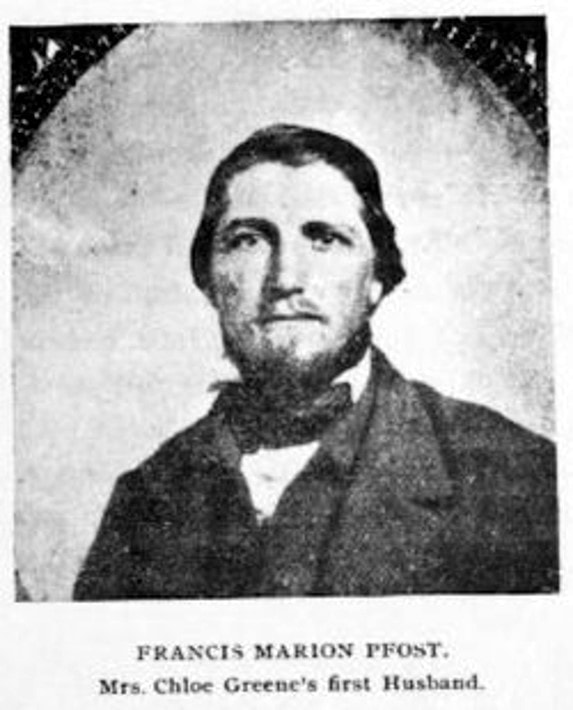
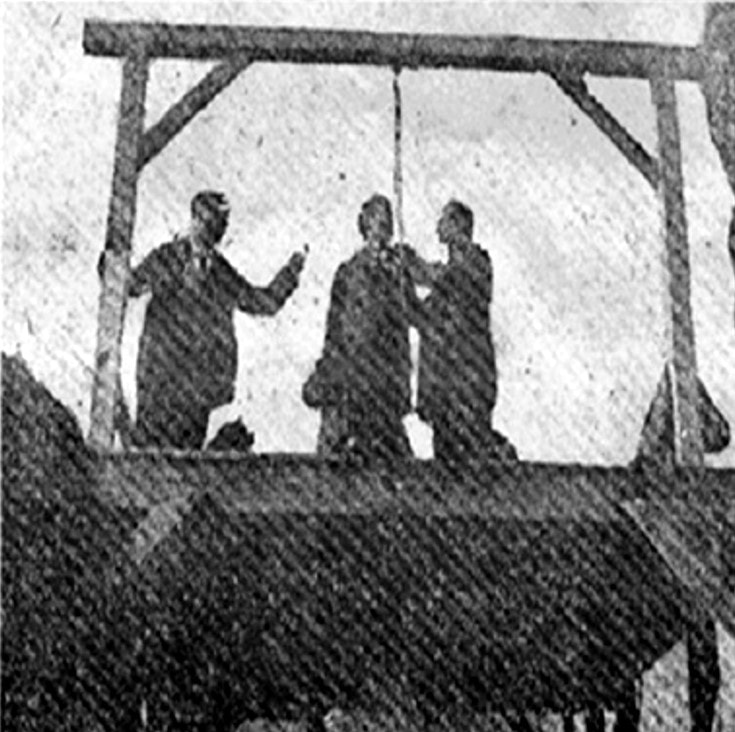
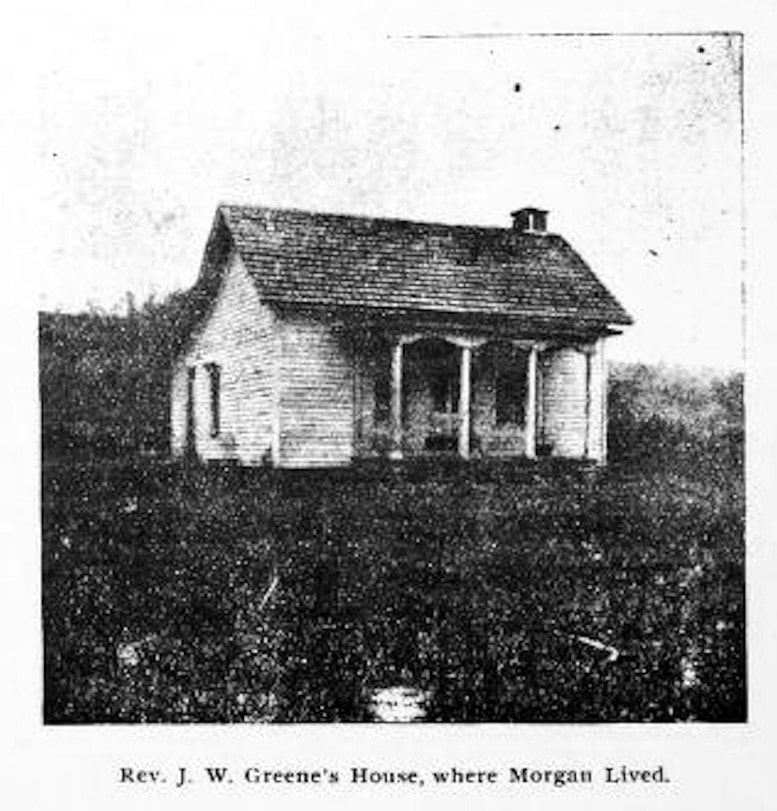
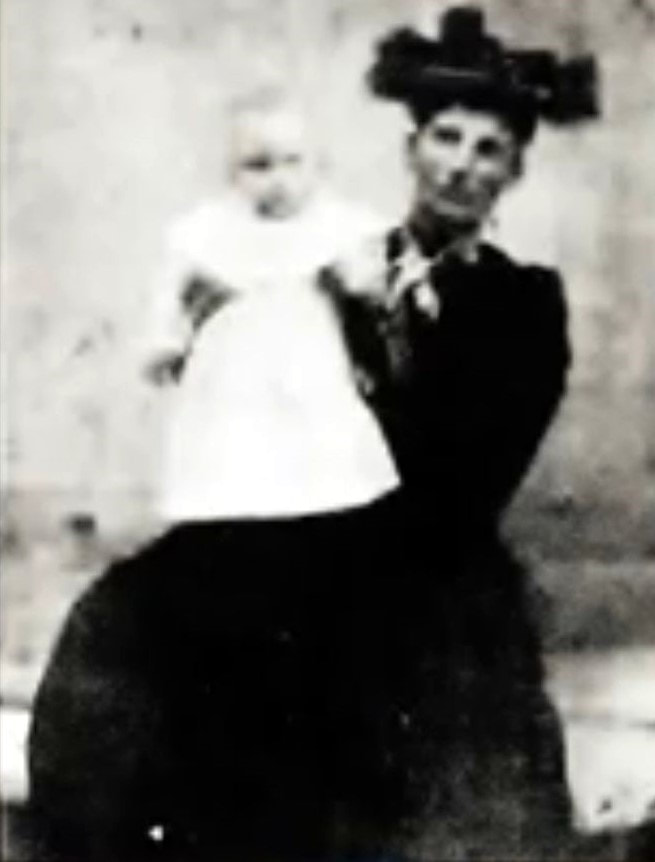
 RSS Feed
RSS Feed

